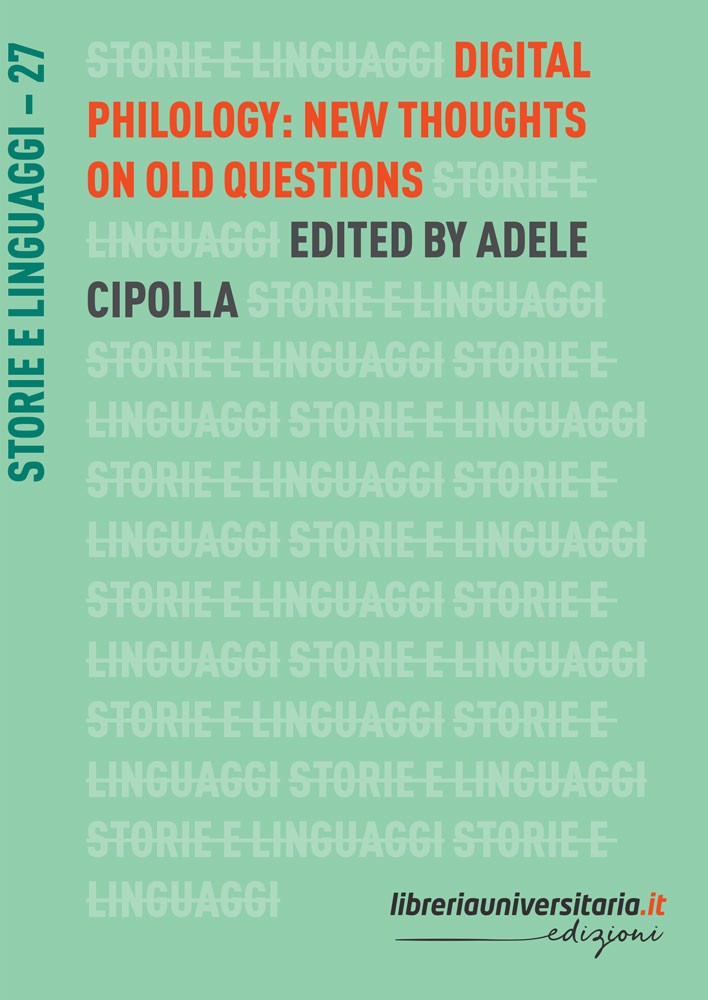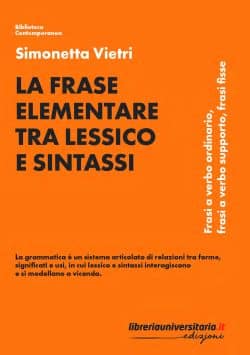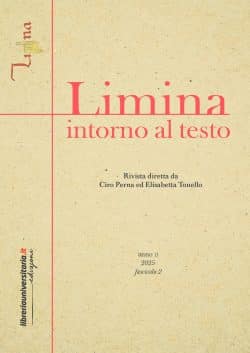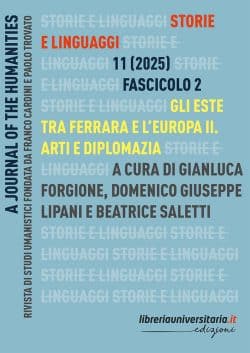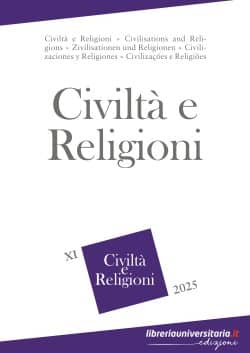Description
This collection gathers the essays by eight scholars from disparate areas of textual criticism, addressing a general main topic, that is philology and digital humanities, and dealing with old and new-Lachmannian approaches, anti-Lachmannian responses, treatments of varia lectio, stemmatology, qualitative and quantitative methods of textual inquiry, and the establishment of standards for digital scholarly editions. The investigated data sets comprise canonical ancient traditions (Paolo Monella), Byzantine scriptural Greek (Barbara Crostini), the dawn of vernacular literacy, with Old Saxon (Marina Buzzoni), the still variable poetic and narrative corpora from the 12th century onwards (Thomas Bein, Anna Cappellotto), French and German epics (Luca Cadioli, Adele Cipolla), the reassessment of neo-Lachmannian procedures to Old French vernacular traditions, as that of the Bédierian Lai de l’ombre (Paolo Trovato). Every author dealt with a given issue from his or her own field of study, searching for and testing the performance of specific digital solutions. All of them touched on and suggested answers to often quite old but still sensitive critical issues.
Introduction – Adele Cipolla
Bibliographical References
I. Walther von der Vogelweide: Vergangenheit, Gegenwart und Zukunft der Edition seiner Texte – Thomas Bein
II. Reconstruction vs Documentation: A Survey of Editorial Conundrums and (Ir)reconcilable Positions – Marina Buzzoni
III. Grounded Theory, Atlas.ti and the Queste del Saint Graal: A Feasibility Test – Luca Cadioli
IV. Digital Scholarly Editing and Text Reconstruction: Theoretical Perspectives and Practical Approaches – Anna Cappellotto
V. Intractable Cases and Digital Hopes: How New Media Can Help with Interpreting Multi-Version Vernacular Texts – Adele Cipolla
VI. The Electronic Edition of Ms Vat. gr. 752: Text or Texts? – Barbara Crostini
VII. Why Are There no Comprehensively Digital Scholarly Editions of Classical Texts? – Paolo Monella
VIII. What if Bédier was Mistaken? Reflections of an Unrepentant Neo-Lachmannian – Paolo Trovato
Indexes

